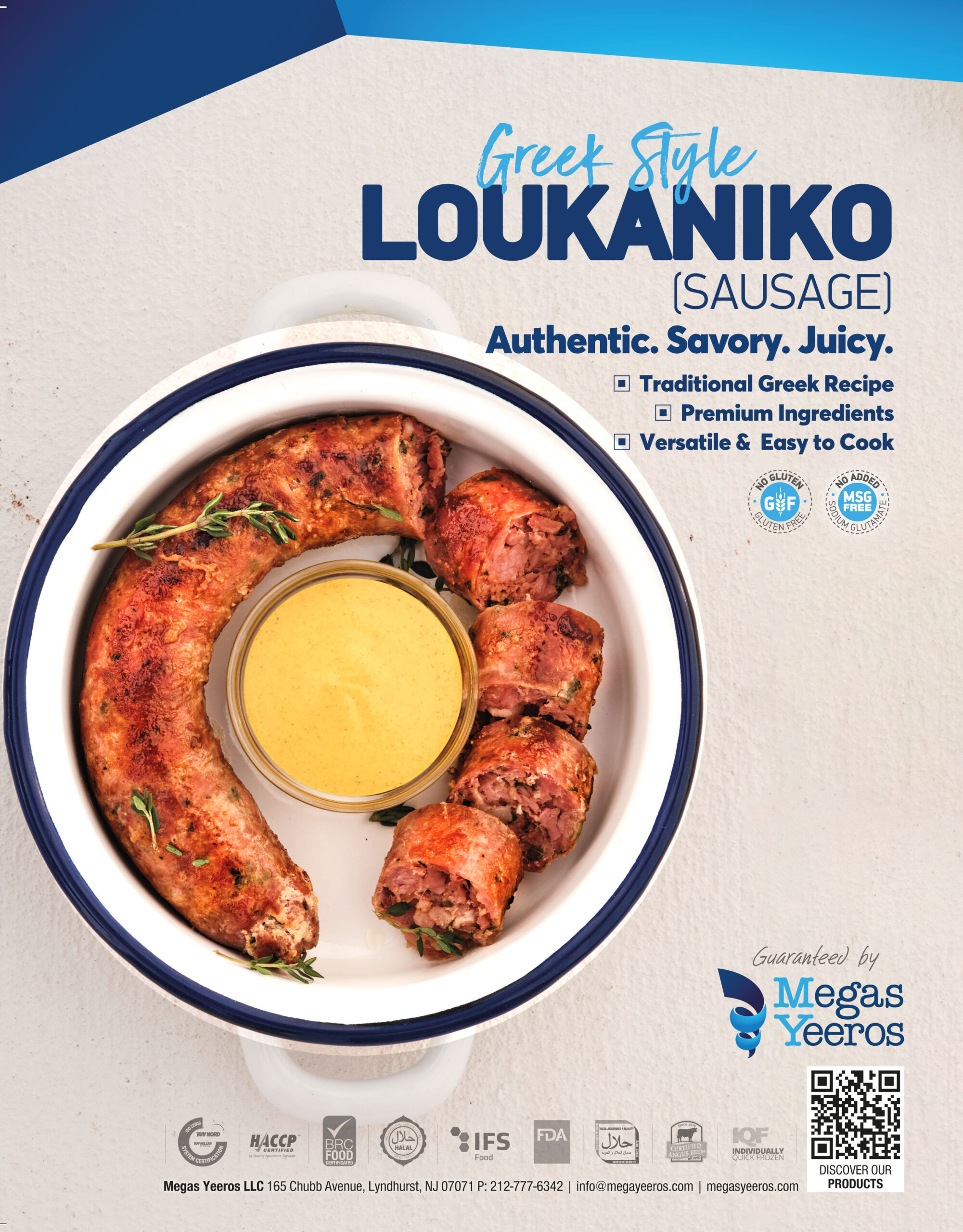“Knowledge is Power”
Posted by estiator at 22 December, at 11 : 59 AM Print
COVER STORY
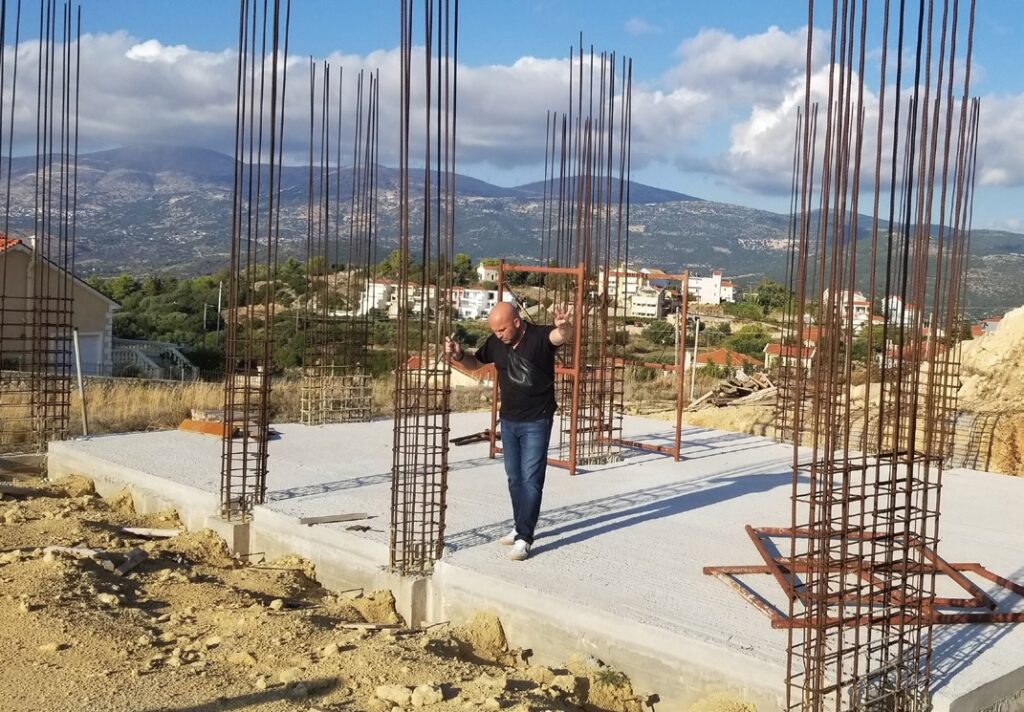
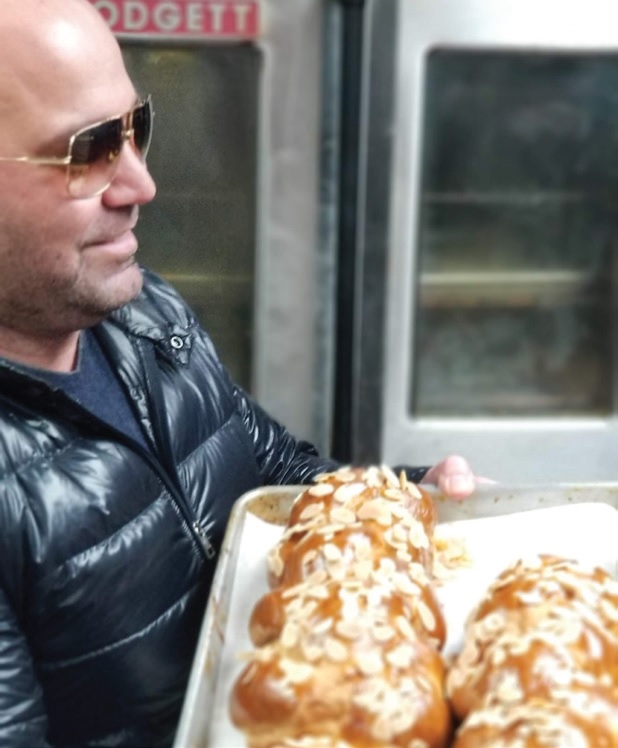
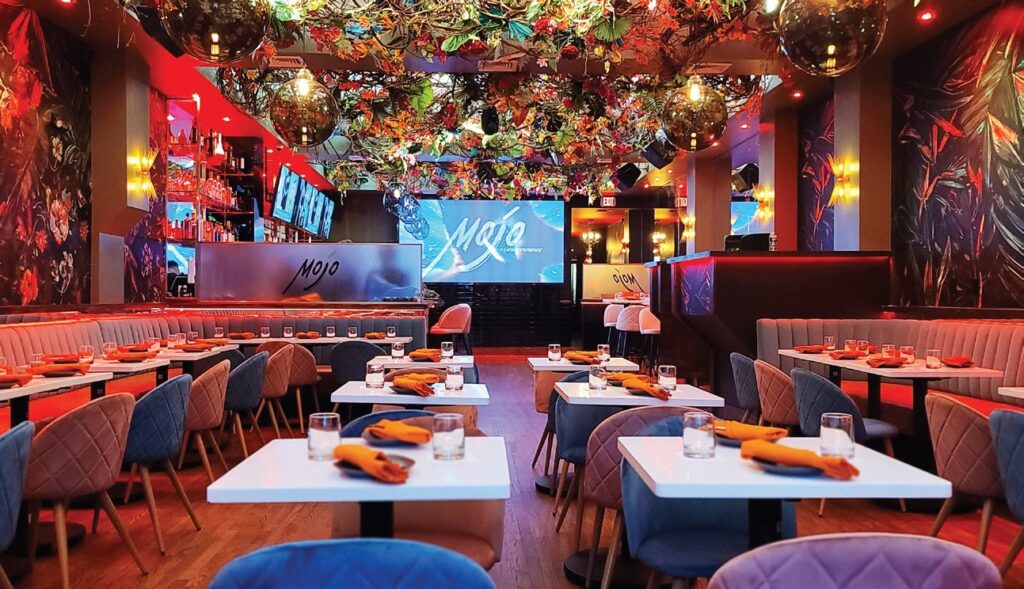
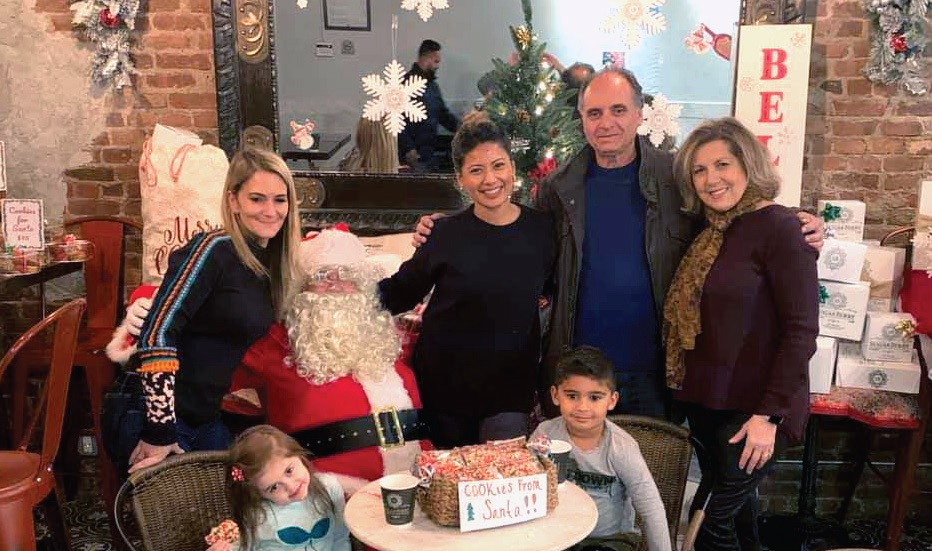
Entrepreneur Peter Kambitsis Shares His Pathways to Success.
By Michael Kaminer
Most mornings, Peter Kambitsis rises in his Long Island home at 5 am. For 30 minutes, he engages in a demanding workout. Next comes his 30 minutes of reflection, whether meditating, praying, or emailing his kids with messages of love and encouragement. In the last half-hour of his daily routine, he focuses on growth by reading or listening to podcasts. “Knowledge is power,” he says.
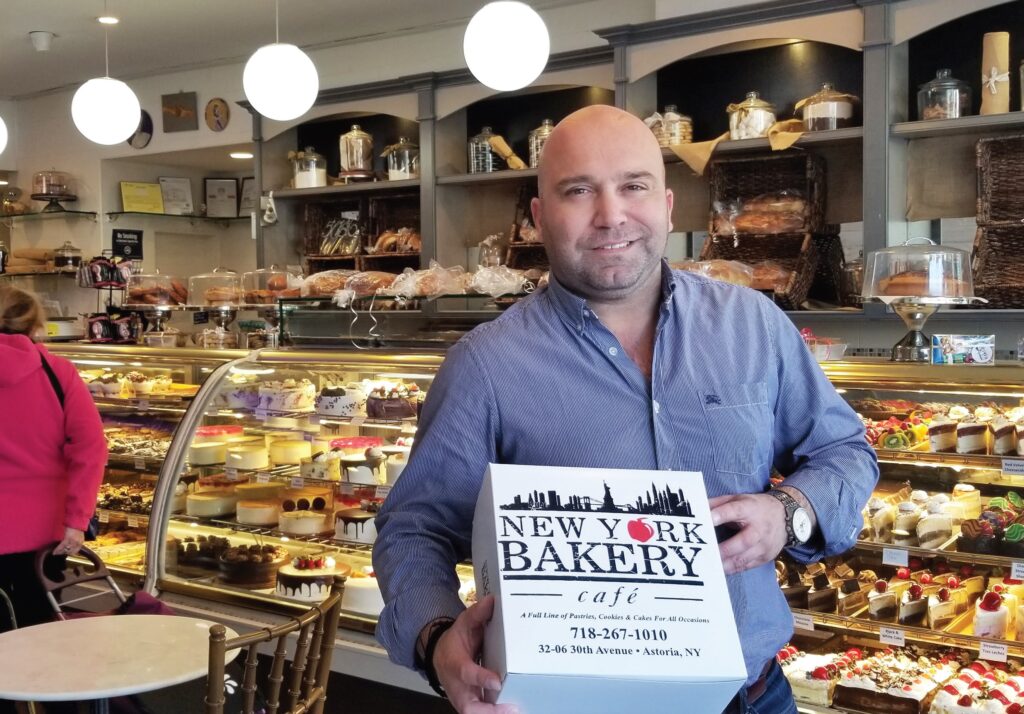
Kambitsis’ discipline, inspired by Robin Sharma’s acclaimed book The 5 AM Club, has served him well. The entrepreneur, business owner, and brand guru oversees more than $125 million in revenue across 30 companies in three states.
Among his successful concepts are Pappa Gallo, an upscale Peruvian-Latin eatery with live entertainment; Sugarberry Bakery, a “European 2.0 bakery” with a serious coffee program; two locations of Mojo, a Latin-fusion restaurant with great nightlife; and New York Bakery Café, a Greek-European bakery in the heart of Astoria, Queens.
The coming year looks even busier for Kambitsis, who is also part of a larger business network that owns 35 locations under different brands across the country. “We’re opening five more locations this year, and we’re aiming to open a factory in New Jersey for bakery distribution,” he tells Estiator.
On his own, Kambitsis has also gone global. He’s teaming with developers in Greece to realize a “smart boutique/smart hotel” concept he created, transforming the guest experience with tech-driven applications. The brand, expected to open its first location in 2025, is called Mema. “It’s my mother’s name and also stands for ‘Mediterranean Masterpiece,'” he says.
As a business consultant, he advises entrepreneurs across industries, including some very far afield from food. “Almost every week, I get a call from someone wanting to start up a new business venture, whether in clothing or hospitality,” Kambitsis says. “One guy just called about dog grooming. I don’t know that field, but business is business. You come up with Excel spreadsheets, break down costs of everything, and figure out where the break-even point comes.”



Kambitsis may sound like an overnight success, but the entrepreneur has been meticulous about business strategy, researching locations and concepts before taking a single step. He’s also drawing on a well of strength from his family, whom he calls his most powerful influences. After earning a double degree in international business and advertising at New York’s Baruch College, he worked for pharmaceutical giants like Pfizer and Johnson & Johnson. But his passion was always in restaurants, and hospitality was, in a very real way, in his blood.
“I had to learn to work at a young age because I was raised in the Astoria projects by a single mom who sent us to Greece every summer to keep us off the streets,” he recalls. “I worked for my uncle Elias at the Dolphin bakery in Kefalonia from the age of nine. He very kind and generous, and I learned the hospitality business from him. What I learned from him now is still what I keep in mind today: Hospitality is about being generous and loving to people who are interested in food or a place to stay.”
Likewise, Kambitsis’ parents anchored and inspired him with life lessons that sparked his success. “My mother, Mema, always taught me to be relentless and never quit,” he says. “And my father, Niko, taught me to look at every business venture with the ending in mind first. He always said to me, ‘Before you start something, understand how you will finish.’” The biggest mistake people make in hospitality, Kambitsis says, is “to get involved with something you don’t know. I have a lot of people coming to me from all walks of life who want to invest. They might own a car dealership or real estate. They want to invest in our projects but don’t know the business.”
Uncle Elias passed away a week after Kambitsis opened his first restaurant, Ripe Juice Bar & Grill in Forest Hills, Queens, in 2008. “I remember talking with him earlier that week and letting him know how much I learned from him,” Kambitsis remembers. “He told me to always look for the best people at all costs. Hire the best and let them do their job. I am successful today because of him. He taught me to be humble, and I genuinely love what I do. I love the challenges of running multiple restaurants. I love the challenges of operating the overseas projects I have started. I love meeting people and making sure everyone is having a great time.”

Some restaurateurs can get seduced by technology and lose sight of the essence of hospitality that Uncle Elias embodied, Kambitsis says. “There are a lot of great technology products, but you can get too tied up in learning gadgets instead of actually running your business,” he cautions. “Keep it simple. Control your prime costs, which are your payroll and food, and you’ll be okay. These digital platforms promise bells and whistles which are not worth the time and trouble.”
Instead, he says, focus on the customers in front of you. “Go up to the table. Shake that person’s hand. Thank them for coming. Touching tables and engaging customers is the most important thing—high touch and low tech.” Customers can sense immediately if an owner cares, Kambitsis says. “Your food shows if it’s made with love—your plating, your service, how your staff speaks to your guests, and how you speak to your staff,” he notes.
In his day-to-day, that also means working with multiple teams to ensure great experiences for customers. “Since I own multiple businesses, I wear many hats, and I change up the flow daily,” Kambitsis says. “From the quick-serve take-out juice bar to the casual restaurants to fine dining to the bakeries, I have learned to change gears and adapt to many environments. I never have the same day twice. Nothing challenges me. Nothing can shake me or move me. I love this quote from the Spartans: ‘Sweat more in training, bleed less in war.’ I like to train and work out scenarios in my head before they happen. This way I am prepared for anything.”
Having the right team in place is also vital, he says. “My team is solid,” Kambitsis says. “One main recipe is the key: Hire amazing people who have the same passion as you. I only partner with people who work just as hard and have the same vision as I do. I look for people who cannot stop talking about the restaurant business.” Kambitsis calls his top-level management and staff “the aces,” and emphasizes their critical role in running his ventures. “In all my businesses, I get to write the playbook and then I put the aces in their respective places,” he explains. “It’s like soccer. Everyone has a position to play when it is game time. Whether I’m developing a tourist project in Greece and putting together a team of contractors with the architects and designers, I do the same thing in the restaurants and bakeries. I get to put together the chefs, the upper management, and key personnel together to make sure we all win together.”

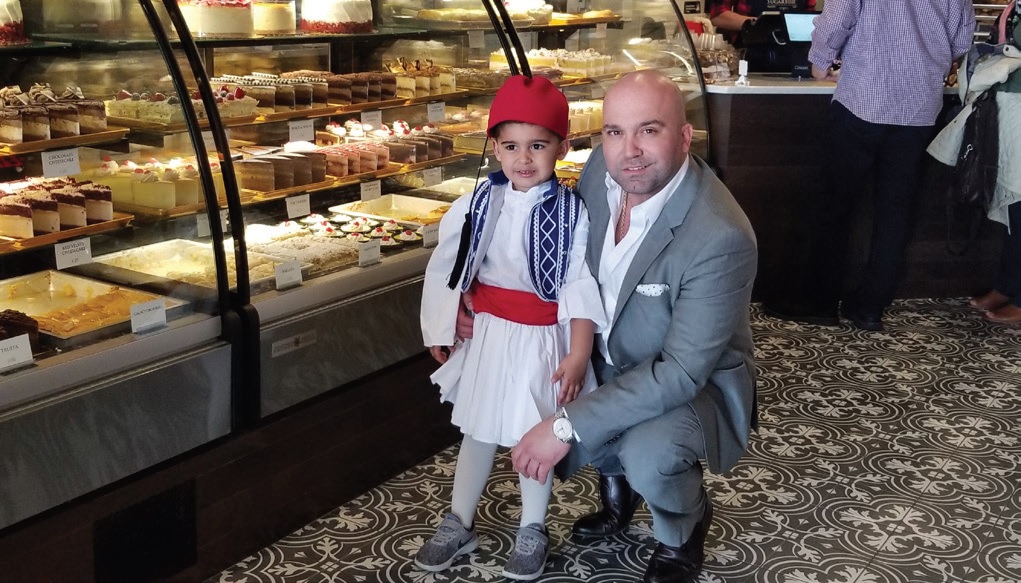
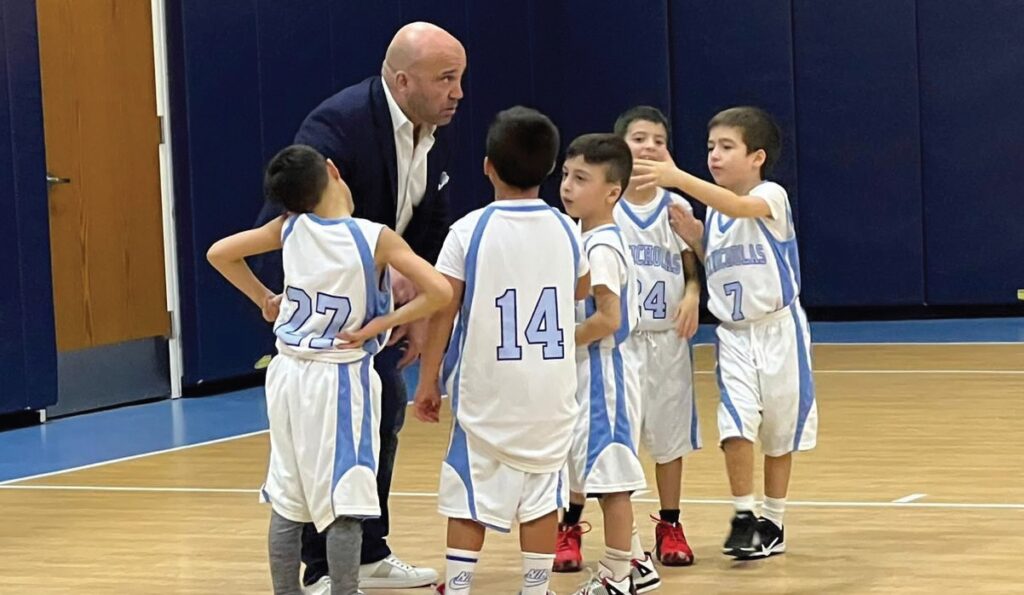
As his team rises, his businesses rise, Kambitsis says. “I don’t build restaurants and bakeries. I build brands. I build memories. And I build people,” he enthuses. “Some partners used to be managers, some managers used to be baristas, servers, or bussers. The higher I go, the more people I take up with me. That’s the difference between me and other entrepreneurs. I call it the Dream Team technique; if I win, five others win with me. And my organization gets bigger every year.”
Even with the growing businesses and expanding teams, Kambitsis still prizes family above all. “Family in the business and family at home,” he says. “My wife supports me all the time. She’s my rock and foundation, and without her holding down the household, I wouldn’t get too far. What’s the point of being a successful businessman but losing in the effort to be a good husband, a great father, a good brother, or a good son? Let’s not confuse getting better at business with being a better person. One is a much bigger priority than the other. Be a good person and do what you love in life.”








